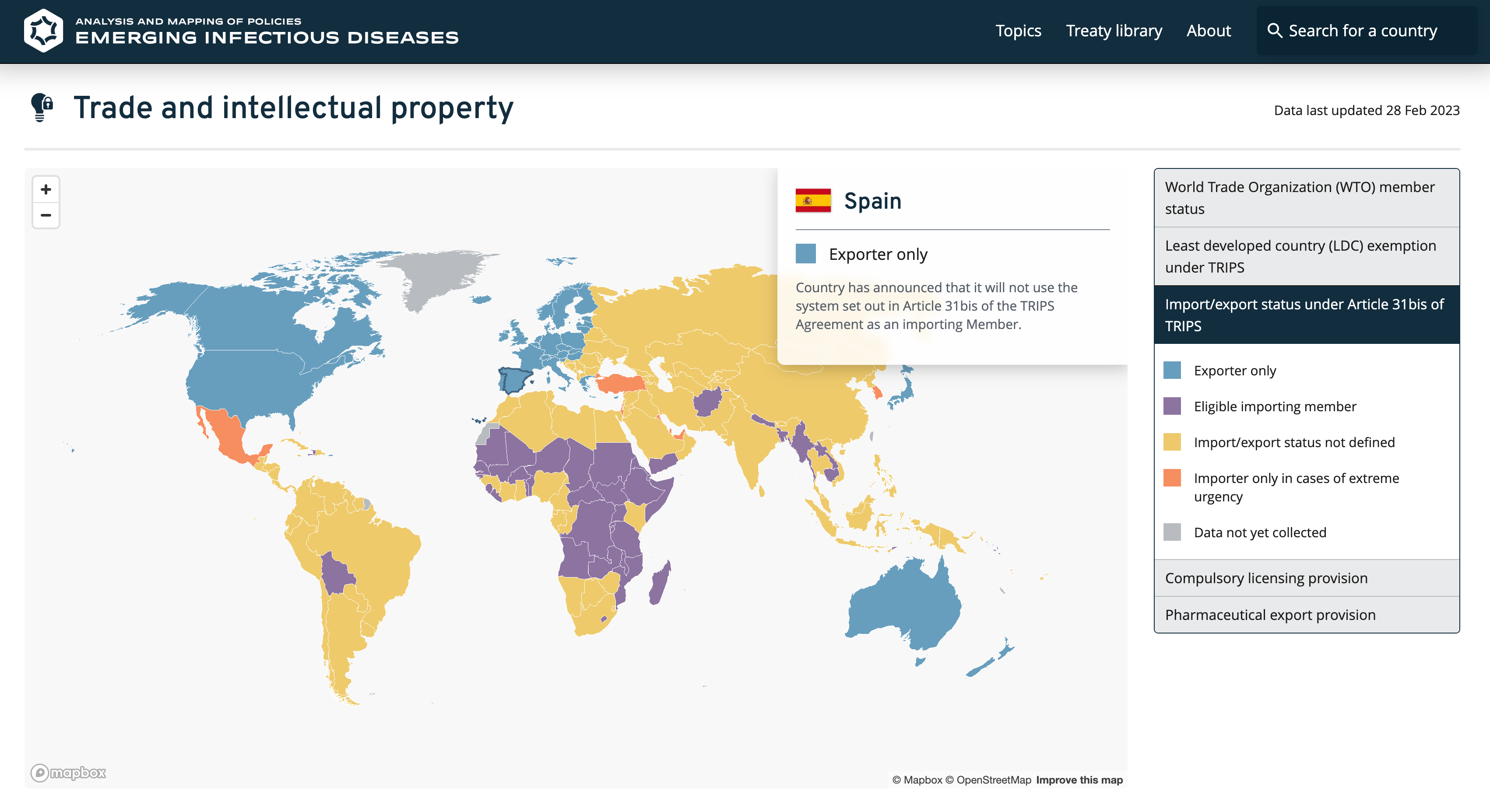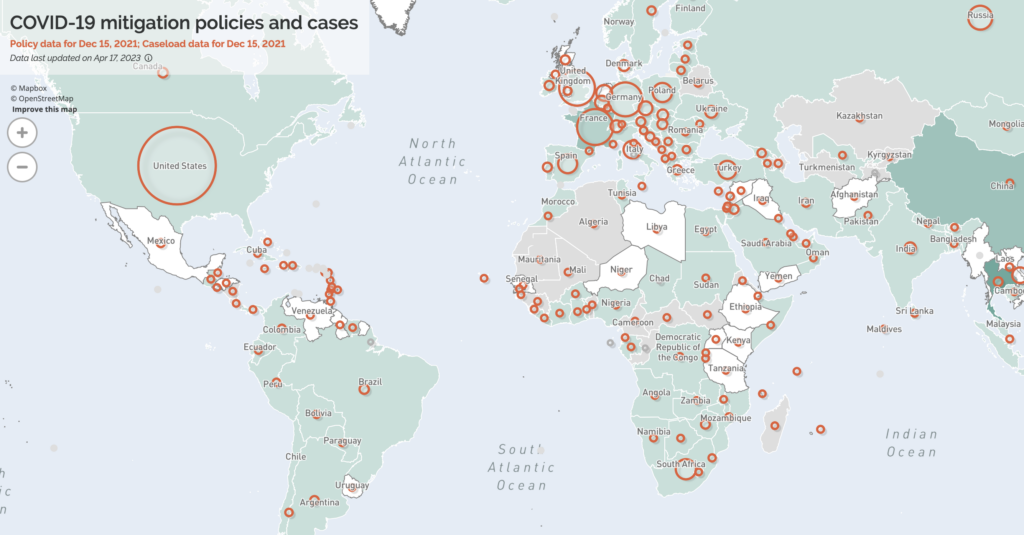Health Governance and Diplomacy
The Health Governance and Diplomacy Lab investigates the laws, policies, organizations and financing mechanisms that govern prevention, preparedness, response and recovery to public health. emergencies.
Key Projects
Analysis and Mapping of Policies for Emerging Infectious Diseases
The Analysis and Mapping of Policies for Emerging Infectious Diseases (AMP EID) platform provides a landscape assessment of the policies and governance regimes relevant to emerging infectious diseases and outbreak response.

COVID Analysis and Mapping of Policies
The COVID Analysis and Mapping of Policies (COVID AMP) visualization tool is a comprehensive database of policies and plans used to address the COVID-19 pandemic.

Georgetown Outbreak Activity Library
The Georgetown Outbreak Activity Library (GOAL) is a user-friendly guide to the activities essential for effective outbreak preparedness, response, and recovery. GOAL provides rapid access to a comprehensive library of activities, access to key information about stakeholders, and examples of real-world applications of outbreak activities through case studies.
This interactive tool supports decision-makers and responders by describing what needs to be done, when, and by whom throughout all phases of a public health event, providing information on existing guidance and authorities, and defining response requirements for new and emerging events. GOAL can also be used for preparedness and planning efforts to ensure that this work is comprehensive and based in the practical realities of outbreak response.
Global Health Security Tracking
The Global Health Security Tracking tool is an integrated mapping and data visualization platform showing the flow of international funding for global health security from funder to recipient globally. The tool tracks funding targeted to improve health security core capacities, funds for outbreak response, and health security metrics.
Pacific Health Science and Security Lab (PHSSL)
The Pacific Health Science and Security Lab works with regional organizations and local governments to address concerns identified by people in the Pacific that are at the forefront of healthcare. We seek to support these stakeholders in their efforts to strengthen health systems and workforces across the Pacific region and to best prepare for and respond to public health events. We are dedicated to supporting local efforts to enhance resilience against endemic and emerging health threats.
Urban Pandemic Preparedness
The total number of infectious disease outbreaks and the diversity of pathogens have increased over the past few decades. Urbanization, directly and indirectly, contributes to the risk of infectious disease and promotes disease emergence in urban populations by providing conditions ideal for the amplification and transmission of disease. Furthermore, because cities are dominant hubs of global travel and commerce, including for voluntary and forced migrants, the risk of disease transmission between global cities is heightened by the transnational flow of products and people. These trends accelerate the speed at which pathogens can spread around the world.
Read more about these projects and the Innoculating Cities books here.
Civ-Mil Coordination and Global Health Security
The Center for Global Health Science and Security is actively supporting governments
and international organizations (IOs) with evidenced-based research approaches to fostering coordination between national militaries, civil defense assets and civilian health institutions. The Center’s goal is to ensure that Ministries of Health and Ministry of Defense operations are seamlessly aligned before, during and after health emergencies, resulting in optimized resource allocation, reduced workforce and logistical redundancies, and enhanced capacity to respond and recover.


